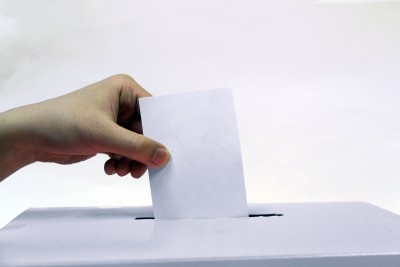Voting rights advocates announced a settlement with the Massachusetts Department of Transitional Assistance on March 19 to advocate for increased voter registration opportunities for eligible Massachusetts citizens, according to a press release from the Lawyers’ Committee for Civil Rights Under Law.

A number of voting rights advocacy groups filed a lawsuit against the DTA in 2012 in an effort to ensure the automatic distribution of voter registration applications to citizens applying for public assistance, assistance in several different languages to clients and regular oversight of the DTA, the release stated.
The settlement aims for DTA compliance with guidelines provided by the federal National Voter Registration Act of 1933 when offering individuals the opportunities for voter registration and led to a requested dismissal of the lawsuit against the DTA.
The settlement will become effective when Judge Denise J. Casper, of the U.S. District Court of Massachusetts, enters an order dismissing the claims against the DTA, the release stated.
Demos, a public policy organization, worked in conjunction with New England United for Justice in the lawsuit against the DTA.
“The claim was for violation of Section 7 of the National Voter Registration Act,” said Lisa Danetz, the legal director of Demos. “The idea behind the law is that voter registration should be easily accessible through the government agencies that people interact with. This is part of the law when it was enacted by Congress. Low income people and people with disabilities are less likely to have a car and [presumably] less likely to have a driver’s license, so [they are] less likely to be able to access voter registration through that venue.”
U.S. Congress designated part of the law to require public assistance and disability offices to provide voter registration, Danetz said. Leading up to the filing of the lawsuit, information spread about the DTA’s alleged failure to provide voter registration.
Thomas Mills, a DTA spokesperson, denied any lack of compliance with the law on part of the DTA. He identified settlement as simply a reinforcement of the department’s commitment to offering reliable voter registration.
“We don’t admit any wrongdoing here. We have always been in compliance with the law, providing voter registration forms to clients.” Mills said. “It’ll come as a reminder to [the DTA staff]. It won’t be new. We’re just going to continue on our efforts to ensure that every client at application and recertification has the opportunity to register to vote and make sure that our staff knows that that is our responsibility.”
The settlement between the parties, Danetz said, sets up an integrated system to make sure that those voter registration services are being offered.
“It includes specific procedures. It includes training. It includes data tracking and monitoring,” she said. “It includes a follow-up when there is a concern that a particular office may not be doing what is it is supposed to and a whole system to make sure that [the provisions which are] really not such a complicated thing happens.”
Mills, however, mentioned that the reason for settlement was not to make sure that voter registration services are being offered because such services are already being offered.
“One of the department’s settlement here was that the litigation was going to force the department to spend over $200,000 on mailing, notifying them of information regarding the lawsuit,” Mills said. “We don’t have to do that now, and I think that that’s a big part of why we settled.”
The lawsuit, however, has been settled only with the DTA. Ongoing legal affairs are still existent against other departments, such as the Massachusetts Executive Office of Health and Human Services and the Secretary of the Commonwealth, Danetz said.
Several residents said increased voter registration is a positive prospect, but opinions on its effectiveness differed.
James Swift, 27, of Brighton, said the settlement won’t be a bad thing, but its benefits will only go so far.
“It will get more people registered. It won’t necessarily result in a higher voter turnout,” he said.
Paul Preston, 48, of Brighton, said despite the fact that increased voter representation is good, the DTA should not have settled.
“I think [the DTA] caved into political pressure,” he said. “They should have just stuck to the way they were going to do it, but increased voter representation is a good thing.”
Daniel De La Torre, 26, of the North End, said he is wary of any bias that may be involved with asking individuals to register to vote by government organizations.
“So first of all [the settlement and its stipulations] could be a positive because a lot of people don’t understand or know how to go out and register to vote,” he said. “If [the opportunity] is right in front of them, then that easy access can be good, and if someone is already registered to vote then will be more likely to vote. But, there’s a danger that if it’s coming from an organization, it might provide a certain lean, and that may be a danger to avoid.”




